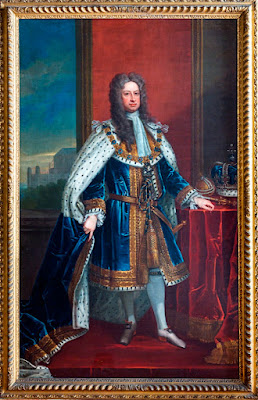The Beatles were one of the most successful and influential rock bands of the 20th century. The group was formed by the "Fab Four": John Lennon (rhythm guitar, vocals), Paul McCartney (bass guitar, vocals), George Harrison (lead guitar, vocals), and Ringo Starr (drums, vocals). From Liverpool to Global Domination Formed in Liverpool in 1960, they dominated the British and international charts from 1962 to 1970. In the early 1960s, their enormous popularity sparked a global phenomenon known as "Beatlemania." As their music grew in sophistication—led by primary songwriters Lennon and McCartney—the band evolved from pop idols into the embodiment of the 1960s counterculture. They experimented with psychedelia, Indian classical music, and studio techniques that changed the face of the recording industry forever. A Prolific Legacy The Beatles wrote over 200 songs (including 186 original compositions released during their active years). Their catalog includes timeless mast...
 |
| George I |
He was German and had no knowledge of British customs and traditions.
For this reason, the ministers decided to appoint a Prime Minister, Sir Robert Walpole, responsible to the king for the government's policy.
George I died due to an illness during a visit to his beloved land of Hanover and George II, George I's son, ascended the throne.
 |
| George II |
Under George II, the Jacobite Rebellion broke out during 1745-46. After the fall of Prime minister Walpole, Charles Edward, the last member of Stuarts, made a last attempt to regain the British throne to his father James Francis Edward Stuart.
It took place during the War of Austrian succession, when the bulk of the British Army was fighting in mainland Europe, but the Stuarts were beaten at Culloden.
Next, when Frederick II of Prussia and George II entered into contrast with all the rest of Europe, a war broke out, Seven Years' war, which lasted seven years (1756-63).
It was initially very disappointing for Britain, with a series of defeats that convinced the Prime minister Sir William Pitt the Elder, to change policy.
France, whose fleet had been destroyed by British ships, was forced to sign the Treaty of Paris, by which Great Britain gained new lands like Bengal. These lands obtained by Great Britain were added to the East India Company, in order to control commercial posts in India (Madras, Calcutta and Bombay).
However, the Company gradually linked itself economically and politically to the major Indian States.In 1760 George II died due to dissection of the aorta before witnessing Great Britain's victory in the Seven Years' war.
 |
| George III |
He was the first Hanoverian king to be born in England and to use English as his mother tongue. During his long reign, the third longest in British history, important events occurred in the history of England and the whole Kingdom: the beginning of the Industrial Revolution, the war of American colonies independence (1774-83) and the Napoleonic wars.
During his reign he tried to reduce in his favor the influence on the Parliament of the Whig aristocracy, heir to the Glorious Revolution of 1688-1689.
In 1765 he began to show signs of mental imbalance which worsened over the years and which were responsible for his death in 1820.
In 1765 he began to show signs of mental imbalance which worsened over the years and which were responsible for his death in 1820.


Commenti
Posta un commento